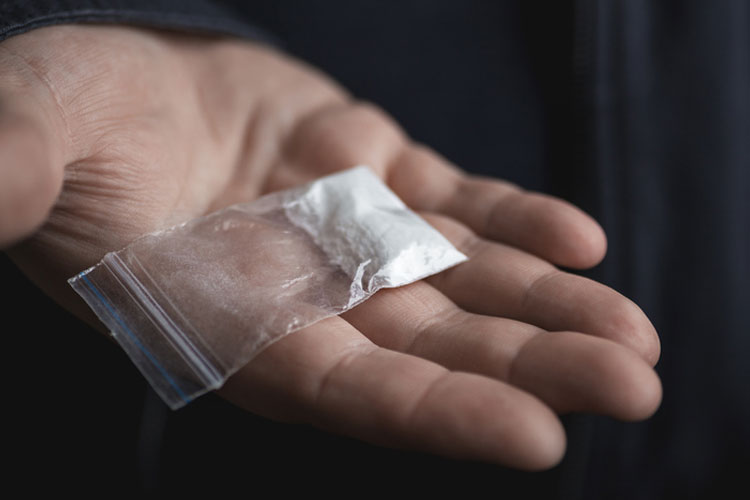
Around two months ago, the Texas Board of Pardons and Paroles had unanimously recommended a posthumous pardon for George Floyd for a minor 2004 drug conviction case. Gov. Greg Abbott, who holds the power to grant the pardon, has been silent over the matter since then.
The lack of comment from the governor hasn’t been well received by Houston Drug Crimes Lawyers who were hoping for the pardon to be granted. Allison Mathis, the Houston public defender who had put forward the request to the parole board, is of the opinion that no matter which way it goes, the governor should provide an answer soon.
Abbott had, in an event held earlier, assured reporters that his office would be analyzing George Floyd’s case. Since then, there has been no further comment on the matter from the governor’s office. As per Mathis, she did not receive any response in spite of repeated calls and emails to the office. The Texas Tribune received no information either.
George Floyd, a resident of Houston and a black man, was killed by a white Minneapolis policeman in May last year. The police officer knelt on Floyd’s neck even though the latter had already lost consciousness, killing him in the process. The killing was condemned by Abbott, who also promised change by hinting at a potential Texas George Floyd Act for dealing with police brutality.
The murder sparked outrage throughout the nation with people protesting against racial injustice and police brutality. Floyd also became the new symbol for the Black Lives Matter movement worldwide. People called for changes in the country’s policing methods, which included budget cuts and shifting responsibilities to other departments.
Abbot, however, chose to defend the law enforcement funding, thereby sidelining the potential changes promised earlier. As a result, the proposal for the George Floyd Act failed in the state legislature in early 2021. A few laws based on parts of the original proposal were later passed, which included restricting chokeholds as well as the necessity of first aid.
As for the delay in granting the posthumous pardon, many are of the opinion that the delay is connected with politics. Cory Session, the vice president of the Innocence Project of Texas, commented that the governor may be playing it safe while waiting for the GOP primaries to be over. Session’s brother, Timothy Cole is the only person to receive a posthumous pardon in Texas till date.
The pardon request by Mathis is related to a 2004 offense in which Floyd was convicted after he was found to be in possession of less than half a gram of crack cocaine. Gerald Goines, the arresting officer, got him convicted saying that Floyd had given the drugs to another person, getting him a 10-month jail sentence.
However, the officer has, since 2019, been accused of proving his claims by providing made-up statements by confidential informants. This forced prosecutors to revisit the thousands of past convictions connected to the officer, with several of them being overturned.
The request by Mathis stated that Goines had made up a non-existent informant to fabricate evidence that led to Floyd’s conviction in the case. And between a veteran police officer and a previous black convict, no one suspected the former.
Floyd has several convictions to his name between 1997 and 2007, mostly for minor crimes like trespassing, drugs, etc. Additionally, he had served a 5-year sentence for an aggravated robbery, to which he had pleaded guilty. But according to Mathis, his pardon request is only for the case related to Goines, not the others. And as per Session’s opinion, delaying justice is equal to denying it. And in this case, Abbott’s silence is denying Floyd justice.
RELATED ARTICLES
Recent Posts
- Major Theft Ring Busted: Over $200,000 in Stolen Lego Sets Recovered in Eugene, Oregon
- Judge Denies Texas’ Bid to Shut Down Migrant Shelter Network in El Paso
- Single Mother in Memphis Seeks Help for Troubled Son Amid Rising Concerns
- California’s Proposition 47 Reform Sparks Intense Political Debate Over Public Safety
- U.S. Man’s Social Security Benefits Denied Over Citizenship Confusion
Categories
Our Supporters
Gold Supporters
Christopher Simon – Atlanta Truck Accident Lawyer
Skiver Law Firm – Phoenix Truck Accident Lawyer
Winer, Burritt & Scott, LLP – Los Angeles Clergy Abuse Law Firm
Michael E. Fenimore P.A. – Pensacola Car Accident Lawyer
Pillsbury & Coleman, LLP – San Mateo Long Term Disability Lawyer
The Law Office of Randall J. Wolfe, P.C. – Oregon City Personal Injury Lawyer
Davies Hothem Injury Law – Buford, GA Car Accident Attorney
Houston Federal Criminal Defense Attorney
Darrow Law Firm – Houston Federal Crime Lawyer
Kansas City Personal Injury Lawyer
Atlanta Truck Accident Attorney
Aitken *Aitken* Cohn Trial Lawyers – Santa Ana Personal Injury Attorneys
Dawson Law Group- Portland Personal Injury Attorneys
CT Mediation Center- New Haven Family Law Attorney
Little Rock Personal Injury Lawyer
Katy Car Accident Lawyer
Franklin Divorce Attorney
Palermo Law- Long Island Personal Injury Lawyer
Dan Rose – San Francisco Car Accident Attorney
Taylor Siemens – Liberty, MO Personal Injury Attorneys
Pfeifer Law Firm – Little Rock Car Accident Lawyer
Walkup, Melodia, Kelly & Schoenberger – San Jose Car Accident Attorney
Solomon, Dwiggins, Freer & Steadman – Las Vegas Business Litigation Lawyer
Roane Law – Asheboro NC Car Accident Lawyer
Dorsch Law Firm – Overland Park Estate Planning Attorney
The Tennessee Sledgehammer – Hermitage, TN Car Accident Lawyer
Cook Law Group – Gainesville, GA Car Accident Lawyer
Simon Bridgers Spires – Atlanta Personal Injury Lawyer
Injury Law Associates – Kansas City Motorcycle Accident Lawyer
Potts & Potts – Honolulu Personal Injury Attorney

